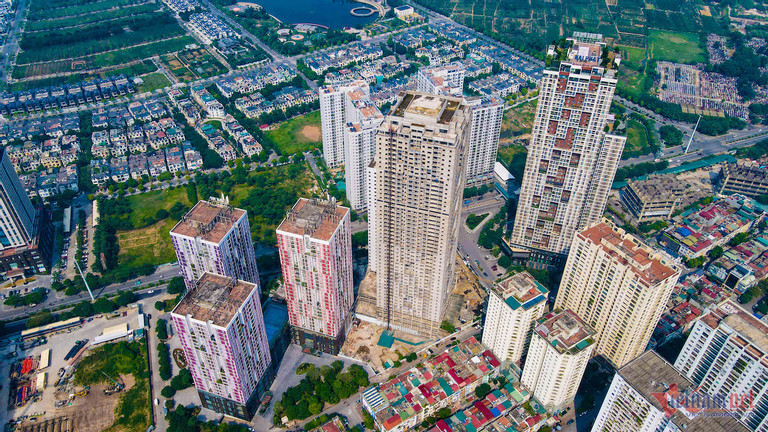
Meanwhile, 149 firms were dissolved, close to the same proportion last year, according to the General Statistics Office (GSO).
GSO, in its latest report about the socio-economic development situation in January, reported that 342 new companies joined the market, or 101.2 percent of the number in the same period last year, and 645 companies returned to the market (129.3 percent).
Hoang Hai, head of the Housing and Real Estate Market Management Agency, said real estate firms faced difficulties in 2023. The number of newly set up businesses in 2023 decreased by 45 percent to 4,725 compared with 2022. The number of dissolved and suspended businesses were 1,286 (+ 7.7 percent) and 3,705 (+ 47.5 percent) for the year, respectively.
Not only small, but large real estate firms also laid off workers in large quantities. Dat Xanh Group laid off 1,380 workers in the first half 2023 and Dat Xanh Services 1,240.
The Ninh Thuan Construction Department reported that in the first 10 months of 2023, only one out of seven real estate firms in the province had transactions (Hacomland Ninh Thuan, with four transactions worth VND5.9 billion).
However, Hai said that the most difficult time of the real estate market was over, saying that important changes in the 2023 Housing Law and the Law on Real Estate Business, ratified by the National Assembly in November 2023, will have a positive impact on the market.
Hai said he can see two ‘bright spots’. First, industrial real estate developers will prosper thanks to the strong FDI (foreign direct investment) flow which has increased land rental in Industrial Zones.
Second, housing prices are reasonable. Many social housing projects have received approval from agencies and will kick off this year. The government has decided that 130,000 social housing products will be completed this year.
Le Hoang Chau, chair of the HCM City Real Estate Association, said the real estate market is recovering. The approval of two amended laws expected to take effect on January 1, 2025 has helped the legal framework that regulates real estate market development.
Can Van Luc, an economist, said there is still room for Vietnam to develop housing credit and industrial real estate. However, it is necessary to control the financing resources, real estate demand-supply and prices, and design credit and financing policies suitable to each market segment.